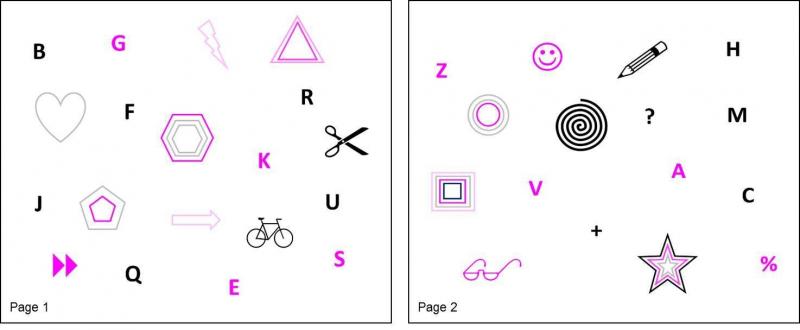根据新研究,法医在弱可视环境下会有面临证据缺失的危险 Forensic Examiners Are in Danger of Missing Evidence in Low-light Environments, According to New Research
一项新的研究发现,如果法医的视觉没有完全适应黑暗环境,那么法医就有可能在弱可视环境中丢失证据的危险。 在Loughborough大学的研究人员发现,当要求人在一个黑暗的房间里识别荧光标记,人们会误读字母和数字,并错过其他信息。 当允许这些参与实验者他们的眼睛先适应环境,看到的准确率提高了16 % 。 “当你的大脑试图了解周围环境时,你的视力仍然模糊,很难定义形状和颜色。“ 但是,你越适应黑暗环境,你的大脑就会越准确地处理从你眼睛接收到的信息。

在黑暗环境的房间内,给参与实验者看的图 (Credit: Loughborough University)
Forensic examiners are in danger of missing evidence in low-light environments if their vision has not fully adapted to the dark, a new study has found. Researchers at Loughborough University have found that people misread letters and numbers and missed other pieces of information when asked to identify fluorescent marks (mimicking fingerprints) in a dark room. When the same participants allowed their eyes to adapt to the environment, they were able to see an average of 16 percent more accurately. "As your brain attempts to understand the surroundings your vision remains blurred and it's difficult to define shapes and colors. "However, the better adapted you are to the dark the more accurately your brain will process the information it's receiving from your eyes.











